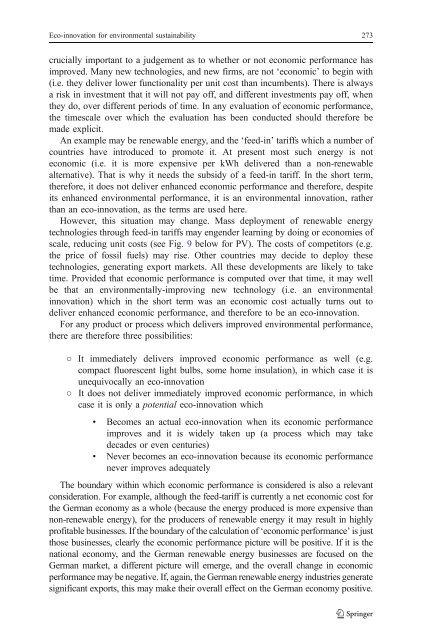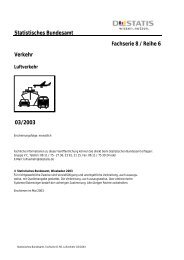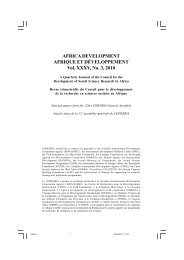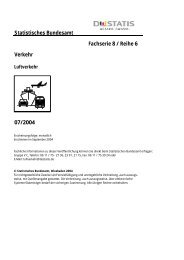The international economics of resources and resource ... - Index of
The international economics of resources and resource ... - Index of
The international economics of resources and resource ... - Index of
You also want an ePaper? Increase the reach of your titles
YUMPU automatically turns print PDFs into web optimized ePapers that Google loves.
Eco-innovation for environmental sustainability 273<br />
crucially important to a judgement as to whether or not economic performance has<br />
improved. Many new technologies, <strong>and</strong> new firms, are not ‘economic’ to begin with<br />
(i.e. they deliver lower functionality per unit cost than incumbents). <strong>The</strong>re is always<br />
a risk in investment that it will not pay <strong>of</strong>f, <strong>and</strong> different investments pay <strong>of</strong>f, when<br />
they do, over different periods <strong>of</strong> time. In any evaluation <strong>of</strong> economic performance,<br />
the timescale over which the evaluation has been conducted should therefore be<br />
made explicit.<br />
An example may be renewable energy, <strong>and</strong> the ‘feed-in’ tariffs which a number <strong>of</strong><br />
countries have introduced to promote it. At present most such energy is not<br />
economic (i.e. it is more expensive per kWh delivered than a non-renewable<br />
alternative). That is why it needs the subsidy <strong>of</strong> a feed-in tariff. In the short term,<br />
therefore, it does not deliver enhanced economic performance <strong>and</strong> therefore, despite<br />
its enhanced environmental performance, it is an environmental innovation, rather<br />
than an eco-innovation, as the terms are used here.<br />
However, this situation may change. Mass deployment <strong>of</strong> renewable energy<br />
technologies through feed-in tariffs may engender learning by doing or economies <strong>of</strong><br />
scale, reducing unit costs (see Fig. 9 below for PV). <strong>The</strong> costs <strong>of</strong> competitors (e.g.<br />
the price <strong>of</strong> fossil fuels) may rise. Other countries may decide to deploy these<br />
technologies, generating export markets. All these developments are likely to take<br />
time. Provided that economic performance is computed over that time, it may well<br />
be that an environmentally-improving new technology (i.e. an environmental<br />
innovation) which in the short term was an economic cost actually turns out to<br />
deliver enhanced economic performance, <strong>and</strong> therefore to be an eco-innovation.<br />
For any product or process which delivers improved environmental performance,<br />
there are therefore three possibilities:<br />
○ It immediately delivers improved economic performance as well (e.g.<br />
compact fluorescent light bulbs, some home insulation), in which case it is<br />
unequivocally an eco-innovation<br />
○ It does not deliver immediately improved economic performance, in which<br />
case it is only a potential eco-innovation which<br />
& Becomes an actual eco-innovation when its economic performance<br />
improves <strong>and</strong> it is widely taken up (a process which may take<br />
decades or even centuries)<br />
& Never becomes an eco-innovation because its economic performance<br />
never improves adequately<br />
<strong>The</strong> boundary within which economic performance is considered is also a relevant<br />
consideration. For example, although the feed-tariff is currently a net economic cost for<br />
the German economy as a whole (because the energy produced is more expensive than<br />
non-renewable energy), for the producers <strong>of</strong> renewable energy it may result in highly<br />
pr<strong>of</strong>itable businesses. If the boundary <strong>of</strong> the calculation <strong>of</strong> ‘economic performance’ is just<br />
those businesses, clearly the economic performance picture will be positive. If it is the<br />
national economy, <strong>and</strong> the German renewable energy businesses are focused on the<br />
German market, a different picture will emerge, <strong>and</strong> the overall change in economic<br />
performance may be negative. If, again, the German renewable energy industries generate<br />
significant exports, this may make their overall effect on the German economy positive.








